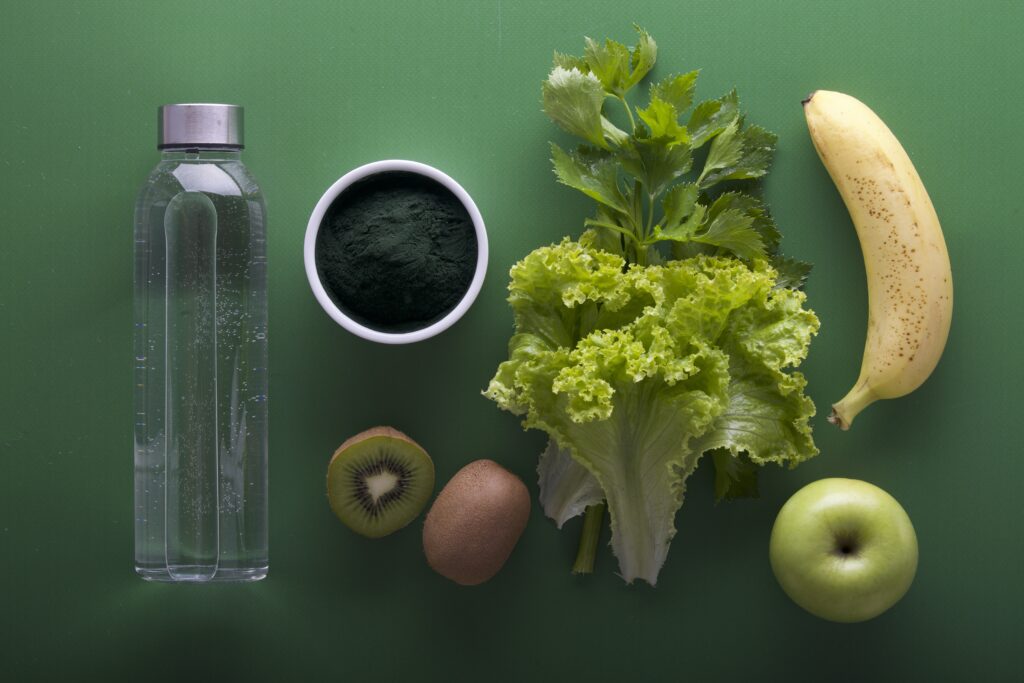A recent study published by CNN suggests that following a plant-based diet can effectively lower cholesterol levels. The study, which focused on the benefits of vegetarian or vegan diets, highlights the potential of plant-based eating to promote heart health. Led by Sandee LaMotte, the research offers compelling evidence that adopting a vegetarian or vegan lifestyle can have a significant impact on cholesterol levels, thereby reducing the risk of cardiovascular diseases. This article explores the findings of the study and examines how incorporating more plant-based foods into one’s diet can lead to better cholesterol management.

Read more about the health news
The Importance of Lowering Cholesterol
High cholesterol levels can have serious health implications, including an increased risk of heart disease and stroke. Lowering cholesterol is essential for maintaining good cardiovascular health. While there are medications available to help manage cholesterol levels, adopting a plant-based diet can also play a significant role in reducing cholesterol naturally. A plant-based diet is rich in nutrients, high in fiber, low in saturated fat, and devoid of dietary cholesterol, making it an excellent choice for maintaining healthy cholesterol levels.
Benefits of a Plant-Based Diet
Rich in Nutrients
A plant-based diet is abundant in essential nutrients, including vitamins, minerals, and antioxidants. These nutrients are vital for overall health and well-being, and they play a crucial role in supporting the body’s natural processes. By consuming a wide variety of plant-based foods, individuals can ensure they are getting a diverse range of nutrients necessary for optimal health.
High in Fiber
Fiber is an essential component of a healthy diet, and a plant-based diet is naturally high in this nutrient. Soluble fiber, in particular, has been shown to help lower cholesterol levels by reducing the absorption of cholesterol in the bloodstream. By incorporating plenty of fruits, vegetables, whole grains, and legumes into their diet, individuals can increase their fiber intake and promote healthy cholesterol levels.
Low in Saturated Fat
One of the primary factors contributing to high cholesterol levels is a diet high in saturated fat. Saturated fat is commonly found in animal products such as meat, dairy, and eggs. By adopting a plant-based diet, individuals can significantly reduce their intake of saturated fat, which can help lower cholesterol levels and reduce the risk of heart disease.
Nonexistent in Dietary Cholesterol
Unlike animal-based foods, plant-based foods are devoid of cholesterol. Dietary cholesterol is found exclusively in animal products, and consuming it can lead to an increase in cholesterol levels. By eliminating or minimizing the consumption of animal products and embracing a plant-based diet, individuals can effectively remove dietary cholesterol from their meals, contributing to better cholesterol management.

Read more about the health news
Specific Plants That Can Help Lower Cholesterol
While a plant-based diet as a whole can contribute to lower cholesterol levels, certain plants have been specifically identified for their cholesterol-lowering properties. By incorporating these plant-based foods into a healthy diet, individuals can further enhance their cholesterol-lowering efforts.
1. Beans and Legumes
Beans and legumes are excellent sources of soluble fiber, which plays a vital role in cholesterol reduction. Soluble fiber forms a gel-like substance in the digestive tract, which binds to cholesterol and prevents its absorption into the bloodstream. Regular consumption of beans and legumes, such as lentils, chickpeas, and black beans, can significantly contribute to lowering cholesterol levels.
Rich in Soluble Fiber
The soluble fiber content in beans and legumes makes them an ideal food for those looking to lower their cholesterol levels. Soluble fiber helps to remove excess cholesterol from the body by binding to it in the digestive system and eliminating it through bowel movements.
Contain Plant Sterols
Additionally, beans and legumes contain plant sterols, which are naturally occurring compounds that have been shown to reduce levels of LDL cholesterol, also known as “bad” cholesterol. Plant sterols work by blocking the absorption of cholesterol in the intestines, further supporting healthy cholesterol management.

2. Nuts and Seeds
Nuts and seeds are not only delicious and versatile but also incredibly beneficial for cholesterol management. They are packed with heart-healthy fats and plant sterols, making them an excellent addition to a plant-based diet aimed at lowering cholesterol levels.
Packed with Heart-Healthy Fats
Unlike saturated fats found in animal products, the fats present in nuts and seeds are predominantly monounsaturated and polyunsaturated fats, which have been shown to have positive effects on cholesterol levels. These heart-healthy fats can help lower LDL cholesterol while increasing HDL cholesterol, also known as “good” cholesterol.
Rich in Plant Sterols
Similar to beans and legumes, nuts and seeds also contain plant sterols, which have cholesterol-lowering properties. Including a variety of nuts and seeds in a plant-based diet can provide additional support for cholesterol management.
3. Whole Grains
Consuming whole grains is not only beneficial for overall health but can also play a role in lowering cholesterol levels. Whole grains are high in soluble fiber and contain a compound called beta-glucan, both of which contribute to healthier cholesterol levels.
High in Soluble Fiber
The soluble fiber found in whole grains, such as oats, barley, and quinoa, helps to reduce cholesterol levels by binding to cholesterol in the digestive system and preventing its absorption into the bloodstream. Adding whole grains to a plant-based diet can be an effective strategy for managing and lowering cholesterol.
Contain Beta Glucan
Beta-glucan is a type of soluble fiber found in oats and barley. Research has shown that regular consumption of beta-glucan can help lower cholesterol levels, particularly LDL cholesterol. Including whole grains in meals and snacks is an excellent way to incorporate this cholesterol-lowering compound into a plant-based diet.
4. Fruits and Vegetables
Fruits and vegetables are naturally low in calories and high in nutrients, making them an essential component of a plant-based diet for cholesterol management. They are rich in fiber and packed with antioxidants, both of which contribute to maintaining healthy cholesterol levels.
Rich in Fiber
Fruits and vegetables are excellent sources of dietary fiber, which aids in digestion and promotes overall gut health. The fiber content in these plant-based foods can help reduce cholesterol levels by binding to cholesterol molecules and removing them from the body through bowel movements.
Packed with Antioxidants
Antioxidants found in fruits and vegetables have been shown to reduce oxidative stress and inflammation, which are associated with heart disease. Regular consumption of a variety of fruits and vegetables can help support cardiovascular health and contribute to lower cholesterol levels.
5. Soy Products
Soy products, such as tofu, tempeh, and edamame, are widely recognized for their cholesterol-lowering properties. They are rich in isoflavones, which have been shown to lower LDL cholesterol levels and improve overall cholesterol profiles.
Contain Isoflavones
Isoflavones are a type of plant compound that can mimic the actions of estrogen in the body. They have been associated with various health benefits, including a positive impact on cholesterol levels. Incorporating soy products into a plant-based diet can provide a valuable source of isoflavones for cholesterol management.
Low in Saturated Fat
Soy products are low in saturated fat and are an excellent alternative to animal-based protein sources. By replacing meat and dairy products with soy-based alternatives, individuals can reduce their saturated fat intake and support healthy cholesterol levels.
6. Plant Sterols and Stanols
Plant sterols and stanols are naturally occurring compounds found in various plant-based foods. They have been extensively studied for their cholesterol-lowering properties and are often added to cholesterol-lowering margarines and spreads.
Naturally Occurring Compounds
Plant sterols and stanols are naturally present in small amounts in fruits, vegetables, nuts, and seeds. These compounds resemble cholesterol and compete with it for absorption in the intestines. By consuming foods that contain plant sterols and stanols, individuals can reduce the absorption of cholesterol and support healthier cholesterol levels.
Reduce Absorption of Cholesterol
Research has shown that regular consumption of plant sterols and stanols can reduce LDL cholesterol levels by up to 10%. Including foods rich in these compounds, such as nuts, seeds, whole grains, and soy products, can be a valuable addition to a plant-based diet aimed at lowering cholesterol.
Conclusion
Lowering cholesterol levels is essential for maintaining good cardiovascular health and reducing the risk of heart disease and stroke. While medications can help manage cholesterol levels, adopting a plant-based diet can be a natural and effective approach. A plant-based diet is rich in nutrients, high in fiber, low in saturated fat, and devoid of dietary cholesterol, making it an excellent choice for promoting healthy cholesterol levels. By incorporating specific plant-based foods known for their cholesterol-lowering properties, individuals can further support their cholesterol management efforts. From beans and legumes to nuts and seeds, whole grains, fruits and vegetables, soy products, and plant sterols and stanols, there is a wide variety of plant-based options to choose from. By making these dietary changes and embracing a plant-based lifestyle, individuals can take control of their cholesterol levels and improve their overall health and well-being.
